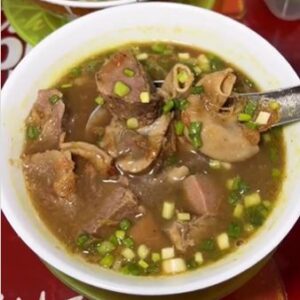JAKARTA, KOMPAS,com – Australia withdrew three variants of Indomie instant noodles from the market, namely Indomie Rasa Soto Mie, Ayam Bawang, and Rasa Rendang.
The withdrawal of Indomie from Australia occurred because the three products did not include information on important allergens such as milk and eggs, which pose a risk to consumers with food allergies or intolerances.
Allergens are food ingredients or compounds that cause allergies and/or intolerance.
Also read: Indomie Launches Korean Ramyeon Series Variant, Collaborating with Korean Band New Jeans
Why is Allergen Labeling Important?
Allergies can be caused by many factors, one of which is food. Food allergies can cause a tingling sensation in the mouth, swelling of the lips, tongue, face, or throat.
In addition, food allergies can cause itchy bumps called urticaria, stuffy nose, sneezing or itchy watery eyes, stomach cramps, vomiting or diarrhea, and even anaphylaxis.
Quoted from the Mayo Clinic website, Thursday (19/12/2024), food allergies can cause serious reactions, including anaphylaxis, which is potentially life-threatening. Therefore, the inclusion of clear allergen information is very important to protect consumers.
In Indonesia, the Food and Drug Supervisory Agency (BPOM) has made it mandatory to include allergen labels on food or drink packaging that contains allergens.
This is stated in BPOM Regulation Number 31 of 2018 concerning Processed Food Labels. The list of allergens on the packaging must be printed in bold type “Contains allergens, see ingredients list in bold”.
Even processed food that is produced using the same production facilities as processed food that contains allergens, must include writing “May contain allergens”, May contain allergens”, or “Manufactured using similar equipment
processing allergens”.
Also read: Unique, there are successful Indomie restaurants in Malaysia and Singapore
What Foods Can Cause Allergies?
Quoted from Medical News Todaythe food that usually causes allergies is protein. However, for most people this protein does not cause allergies.
Allergic reactions can occur because the immune system misrecognizes some proteins in food as dangerous substances.
The following are foods that often cause allergies:
- Eggs: Egg allergies are more common in children and can cause serious reactions such as anaphylaxis. Some people are allergic only to raw eggs, while others can be allergic to eggs and other poultry products (bird-egg syndrome).
- Fish: Fish allergies can cause severe reactions, including anaphylaxis, and people who are allergic to one type of fish are more likely to be allergic to others. Cooking does not remove fish allergens.
- Cow’s Milk: Cow’s milk allergy commonly occurs in children and often gets better with age. Symptoms include rash, diarrhea, and in severe cases, anaphylaxis.
- Tree Nuts: Allergies to tree nuts such as walnuts and hazelnuts usually last a lifetime and can cause anaphylaxis. Someone who is allergic to one type of nut is usually also allergic to other nuts.
- Peanuts: Peanut allergies can be severe, even in small amounts, and do not go away with cooking. People who are allergic to peanuts may also be allergic to other nuts such as soybeans or green beans.
- Shrimp and Shellfish: Allergies to shrimp, lobster, and shellfish can cause severe reactions, and people who are allergic to one type of shellfish are usually allergic to others.
- Soy: Soy allergies are common in children and usually disappear with time. Although it rarely causes anaphylaxis, the symptoms are similar to a milk allergy.
- Wheat: Wheat allergies are common in babies, especially to the gliadin protein in gluten. Wheat allergy sufferers are advised to avoid foods that contain gluten.
Also read: Trying the Viral Fried Indomie Ice Cream, How Does It Taste?
Listen breaking news And selected news we’re right on your phone. Choose your favorite news channel to access Kompas.com WhatsApp Channel: https://www.whatsapp.com/channel/0029VaFPbedBPzjZrk13HO3D. Make sure you have installed the WhatsApp application.






